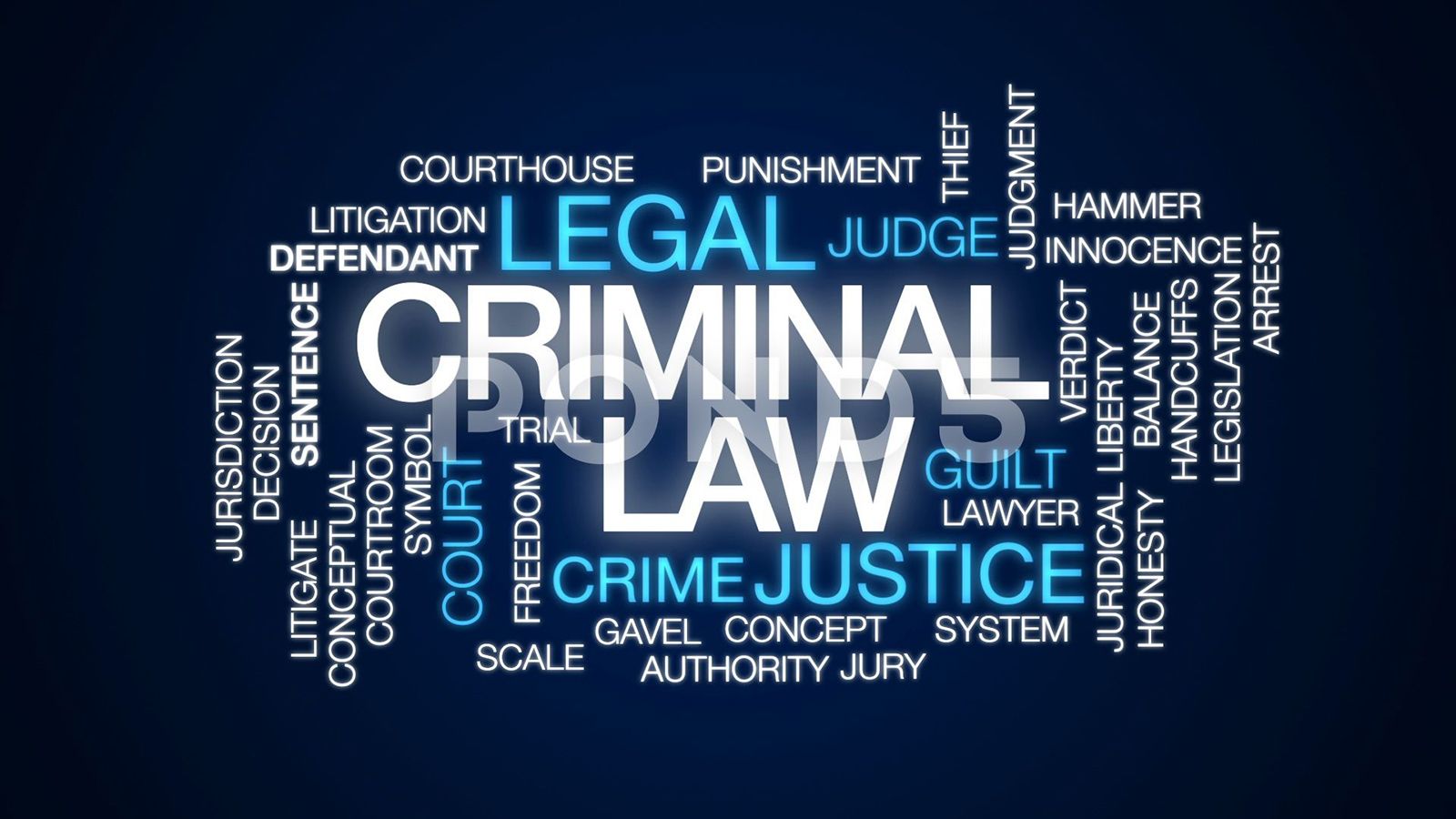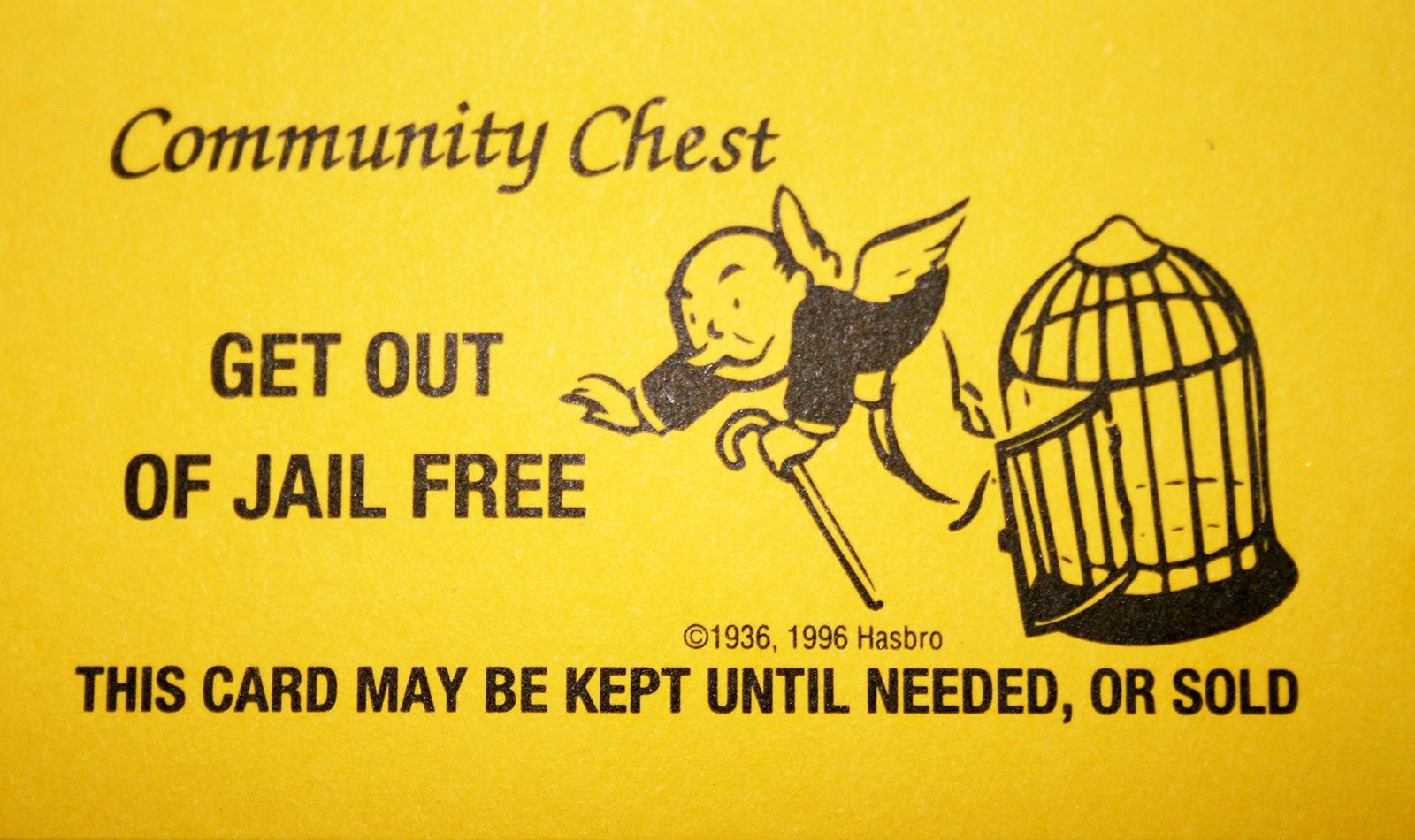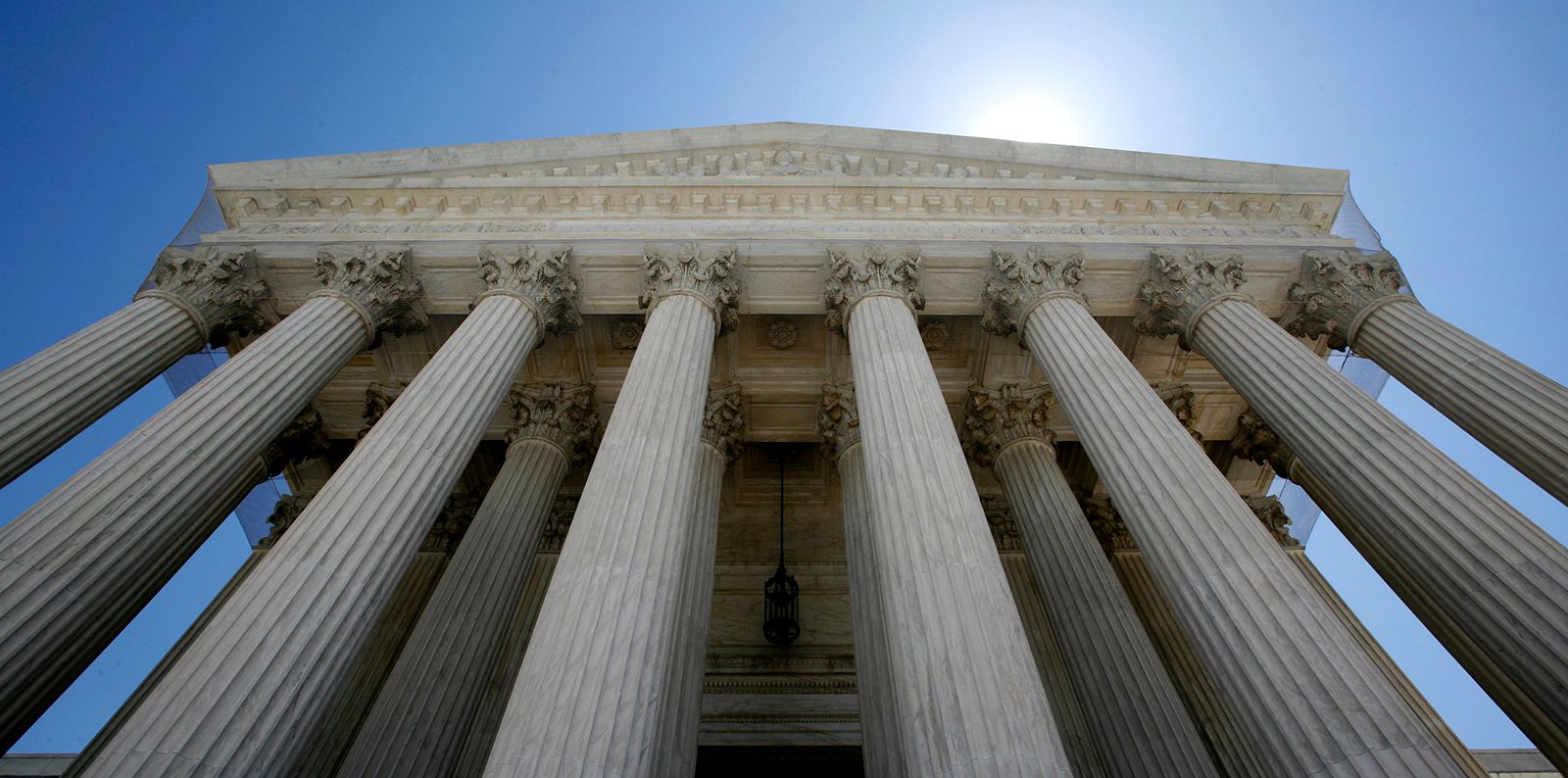Intake
The Criminal Division of Superior Court manages criminal complaints from the time they are lodged to their resolution or "disposition". The accused, or "defendant" is charged with an offense as a result of a formal complaint issued by a law enforcement agent or a citizen who believes an offense has been committed against their person or property. It can also result from an "indictment" by a panel of citizens gathered to consider evidence, called a "grand jury". Arrests can occur at the scene of a crime or based on warrants or sworn statements ordering a court appearance. All arrests must be based on "probable cause", or reasonable grounds to believe that an offense has been committed, and the defendant may have committed the offense. Complaints state the reasons for the charge, and refer to offenses listed in the "New Jersey Code of Criminal Justice" (Title 2C) that includes all of the laws against criminal behavior.
Criminal offenses are heard, or considered in Superior Court, and are more serious than non-criminal charges heard in municipal courts where the offense occurred. Defendants found guilty, or "convicted" of crimes face more serious consequences, with punishments spanning probation supervision and fines to the loss of liberty through confinement for a year or more. Crimes are classified by degree. Degrees range from first to fourth degree offenses. A First degree crime carries the potential penalty of 10-20 years in prison. A Second degree crime carries a potential penalty of 5-10 years. Defendants who are convicted of first and second degree crimes face a presumptive term of incarceration. It is assumed that they will be sentenced to serve time in prison. A Third degree crime may result in 3-5 years if convicted, while Fourth degree crimes carry a potential penalty of up to 18 months in jail. There is a presumption of non-custodial sentences on 3rd and 4th degree offenses.

Complaints heard in municipal courts are "disorderly persons" offenses or "petty disorderly persons" violations, which carry less restrictive punishments upon conviction. Disorderly persons offenses may be sentenced to up to 6 months in a county jail. Petty disorderly convictions may render up to 30 days in jail.
First Appearance
Once a complaint is issued, defendants are either arrested or issued a summons or notice to appear in municipal or Superior Court on a first appearance. If they fail to appear, a warrant may be issued for the accused's arrest by a judge if there is proof of service, or evidence that the accused received the summons or notice and failed to appear. At the first court appearance, defendants are advised of their rights. Their bail is reviewed.
Bail
Bail is required to be set within twelve hours of the issuance of a complaint. All defendants have a right to bail under our state constitution. If bail is posted, defendants are released until the charges listed in the complaint are resolved. Defendants can be required to post funds or property to assure that they will appear in court in the future. They may be required to deposit funds or property in exchange for a promise to appear. If defendants have significant ties to the community, or no criminal history, they may be considered for a Release on Own Recognizance or R.O.R., which is an affidavit certifying that they are aware of the charges levied against them, and will appear in court to face them. Defendants may also be required to give a personal bond, which is a promise to appear or face a judgment , whereby a specified amount of money is forfeited. Some defendants pay a bail bondsman to post funds on their behalf. These defendants may be ordered to post a higher bail, or have no bail set. They will remain in jail until the charges are disposed. If they are released and appear in court as required, bail money may be refunded in full upon case resolution or disposition. Once defendants are released, bail is discharged to the surety.
Bail Investigations
Bail investigations may be ordered by a Superior Court judge of the Criminal Division. Criminal Division bail investigators or case supervisors collect information on the defendant's ties or standing in the community. Identifying information is collected, including the names, addresses dates of birth, employment, criminal record, mental health and drug abuse history. These investigations are conducted by professionals working for the court. They investigate and report on a defendant's amenability to bail. Bail investigation reports consider the seriousness of the offense and the severity of punishment upon conviction, as well as the defendant's family ties and financial status. All of these factors are considered in light of the probability that the defendant will appear for trial or other court events. Case supervisors or bail investigators report to the judge, who hears evidence from the defense and prosecution and decides the amount and form of bail to be set, if any.
Right To Counsel
At their first appearance defendants are advised of their right to counsel. This means that they are entitled to have an attorney represent them and answer the charges. If they indicate that they are unable to afford an attorney, Criminal Division staff are assigned to conduct indigence investigations. These investigations consider defendants' assets and liabilities, and recommend that cases be assigned to a public defender if a defendant is unable to afford a private attorney. Private attorneys are usually either self-employed or work for private law firms who charge an hourly rate for services.
In making indigence determinations, Criminal Division staff consider defendants' ability to post bail, the amount of bail posted, the willingness of friends and family members to pay for an attorney, and any factor related to a defendant's claim of impoverishment. They review tax returns, credit and wage records and any other relevant information regarding the ability of defendants to hire their own attorneys. If a defendant is declared indigent, a public defender or "pool attorney" will handle the case until it is resolved, by a "plea", "downgrade," "dismissal, or Pretrial Intervention", or "trial" through a sentencing process. Some downgraded cases are ordered, or "remanded" back to the local municipal court for disposition. A local public defender may be assigned to the case by the magistrate.
If an investigation reveals assets or it is determined that a defendant has some means to pay for an attorney, the criminal case supervisor will recommend that a defendant's application for indigent defense services be denied. A Criminal Division judge may rule on the recommendation, ordering a defendant to hire an attorney, allow "pro-se" or "self" representation, or order a defendant to consult attorneys who may take their case at a reduced rate. Over 85% of all criminal cases have a public defender assigned.
Substance Abuse Evaluations
According to state and federal estimates, up to 70% of all persons charged with a criminal offense are impaired with drugs during the crime. Substance abuse evaluators interview defendants charged with drug and property offenses to determine the extent of their involvement with addictive drugs. Working within the Criminal Division's Treatment Assessment Services for the Courts (TASC), these professional evaluators interview defendants, subject them to urine screening to identify current drug use, and prepare drug assessments or reports for criminal judges, detailing drug abuse histories, identifying treatment needs and recommending counseling at local drug and alcohol treatment centers when support is needed to overcome addiction. Judges may order defendants into drug or alcohol treatment as a condition of their bail or probation. This program is resourceful to judges when determining appropriate community support systems for defendants who are released from jail. Failure to complete treatment may result in sanctions, including bail or probation revocation with a loss of liberty. For some defendants who suffer from severe drug addiction, receiving treatment arranged and mandated by the courts becomes not only a choice between jail and community living, but one of life or death. The program is expanding and has provided judges with an option to interfere with a cycle of arrest and drug abuse that threatened to smother the judicial system in 1989-90 with a colossal backlog of drug cases.
Pre-Indictment Events
Following the filing of a complaint and the first court appearance, the prosecutor's office in each county determines whether to pursue a criminal complaint. Prosecutors determine if cases have merit and sufficient evidence to pursue a conviction. In most counties, the prosecutor's Case Screening Unit reviews police reports and interviews victims and witnesses to determine if the original charges will be prosecuted. If there is insufficient evidence, the charges are downgraded to disorderly persons offenses and "remanded" or sent to the municipal courts for a hearing or dismissed. In some counties, prosecutors pre-screen potential Superior Court filings before a complaint is signed.

Plea Bargains
In many cases, the prosecutor and a defendant's lawyer will negotiate a plea bargain. In a plea agreement, the prosecutor may offer the accused an arrangement where s/he will recommend a reduced term of incarceration or probation in exchange for a guilty plea. In some instances, the charges are reduced or dismissed as part of the plea bargain. Maximum sentence terms may also be part of negotiated agreements. Criminal Division individual judge teams, managed by team leaders, coordinate court dates with the prosecutor and the defense attorney regarding the plea agreement and establishes a court date for the plea to be entered.
Defendants entering a plea must sign a statement certifying that they understand the plea and are entering into the agreement voluntarily and without pressure from the prosecution or their own attorney. They also acknowledge that the Criminal Division judges are not bound by the agreement when deciding and rendering sentences. If a judge perceives that the plea bargain is too lenient, the judge can reject the plea and order the prosecution and defense parties to renegotiate, or order the matter set down for trial. 30% of all complaints are settled through pretrial programs and negotioations . After a criminal case is indicted, over 70% are resolved without proceeding to a full trial.
The Criminal Practice Division of the Administrative Office of the Courts tracks all criminal cases in all counties from the time a complaint is issued to its disposition. If some courts have persistent backlogs, an analysis of the system can be made through the division's statewide criminal case computer network known as Promis Gavel. Methods for reducing backlogs can be formulated by the Conference of Presiding Judges and Criminal Division managers, or local speedy trial coordinating committees led by criminal presiding judges.
Defendants pleading guilty as a result of the plea agreement must acknowledge their plea in open court. Defendants who plead guilty after plea negotiations do not surrender their right to appeal their convictions to the Appellate Division of Superior Court.
Defendants pleading guilty to crimes are subject to a Presentence Investigation, conducted by probation officers or case supervisors on the judges team in the Criminal Division.
Pre Trial Intervention Program (PTI)
Criminal Division Case Supervisors conduct investigations on adult defendants who apply for Pretrial Intervention. This is a diversionary program which permits certain defendants to avoid formal prosecution and conviction by entering into a term of court supervised community living, often with counseling or other support. Criminal Division Managers direct this program. Case supervisors prepare reports to aid the Criminal Division Manager and the prosecutor in deciding whether to recommend approval and for criminal judges determining if defendants will be admitted. Defendants opting for this program apply directly to Criminal Division Management. Case supervisors conduct investigations into the history of all applicants, to ensure their eligibility. Admission to the program requires the consent of the prosecutor, the Criminal Division Manager and the criminal judge.
Defendants charged with violent offenses generally are not admitted. Probationers and parolees are also generally excluded, since they have prior convictions. Persons accused of racketeering or organized crime are generally not admitted, as well as public officials who are accused of abusing their positions for personal gain against the public trust. Prosecutors must be consulted before an applicant charged with a first or second degree crime can even be considered for PTI.
The objective of PTI is to provide an incentive for first time non-violent offenders to rehabilitate. Conditions attached to judicial orders for pretrial intervention may require defendants to obtain a substance abuse evaluation from TASC, participate in substance abuse or mental health counseling or community service, or submit to urine testing, pay restitution and fines, or give up a firearm or driver's license. Participants have criminal charges formally suspended for up to three years. Once a participant completes the program, charges are dismissed. However, if defendants fail to complete special conditions attached to their term of PTI supervision, the participant can be terminated from the program, triggering a resumption of the formal criminal process. These defendants may face indictment and trial, and if convicted, face the penalties prescribed by the criminal code. The Administrative Office of the Courts maintains a computer registry of all PTI applicants, to ensure a person is not admitted into PTI more than once.
The Grand Jury
If a criminal case has not been, downgraded, diverted or dismissed, the prosecutor will present the case to a grand jury for an indictment. The grand jury is composed of a group of citizens who have been selected from voter registration, drivers license and tax lists. The grand jury considers evidence presented by the county prosecutor and determines if there is sufficient evidence to formally charge defendants and require them to respond to the charge(s). An indictment is not a finding of guilt. Generally, neither the accused nor their attorneys are present. Witnesses normally testify regarding the crime. After considering evidence, if a majority of the 23 jurors vote to indict defendants, they must face further criminal proceedings. The return of an indictment is called a true bill. If a majority finds the evidence to be insufficient to indict, the grand jury enters a no bill and the charge(s) are dismissed. The jury may, however, decide to charge defendants with a less serious offense, to be downgraded or remanded to the municipal court. The accused must appear in municipal court to face a disorderly persons or petty disorderly persons charge.
The Indictment Process
If a criminal case has not been downgraded, diverted, dismised, or pled out the prosecutor will present the case to a grand jury for an indictment. The grand jury is composed of a group of citizens who have been selected from voter registration lists. It is their civic duty to serve. They consider evidence presented by the county prosecutor and determine if there is sufficient evidence to formally charge the defendant and oblige him to respond to the charge(s). The indictment is not a finding of guilt or a conviction. Neither the accused or his attorney are present. Witnesses may testify regarding the crime. Defendants may testify, however, if they are requested to attend and elect to surrender their right against self incrimination as guaranteed by the constitution. After considering the prosecutor's evidence and the testimony of witnesses, if a majority of the 23 jurors vote to indict the defendant, he must face further criminal action. This finding is a true bill that triggers further proceedings in the Criminal Superior Court. If a majority finds the evidence to be insufficient to indict, the grand jury enters a no bill and the charge(s) are dismissed. The jury may, however, decide to charge the defendant with a less serious offense, to be heard in municipal court. In this instance, the offense has been downgraded or remanded. The accused must appear in municipal court to face a disorderly persons or petty disorderly persons charge.
The Pre-Arraignment Conference and The Arraignment
Within twenty-one days of the return of an indictment, a pre-arraignment conference is held. This pre-arraignment conference is scheduled by Criminal Division Staff. Defendants may wish to apply for public defender representation at this point if they are not yet represented. Prior to this conference, discovery or evidence is available to defense counsel. This exchange of evidence provides the defense with an opportunity to review the evidence the prosecution intends to use against the accused prior to the conference. After reviewing the discovery provided prior to the pre arraignment conference, defendants may decide to apply for Pretrial Intervention, or to enter plea bargain negotiations. Defendants may also indicate their intention to plead guilty to the charge for which they were indicted.
Arraignment / Status Conference Standards
A formal arraignment occurs no later than 50 days after an indictment. Upon notification by the Criminal Division, defendants must appear and face formal notification of their charges. They may plead guilty at this point, either to the charges listed in the indictment, or to revised charges resulting from plea negotiations. If plea negotiations are ongoing, the parties may review the status of the plea offer. Defendants may also opt to apply for the Pretrial Intervention program at this juncture, or be admitted into the program if they have not applied prior to arraignment. If a guilty plea is entered at the formal arraignment, Criminal Division judges order a presentence investigation to be conducted by Criminal Division case supervisors. Sentencing will follow the presentence investigation, generally 4 to 6 weeks after convictions.
Status Conferences and the Pretrial Conference
Defendants who have pleaded not guilty at this point may continue plea negotiations or preparation for trial. Pretrial case resolutions may occur at a status conference, where a defendant may decide to enter a guilty plea with or without a negotiated plea bargain.
At Pretrial Conferences, defendants may enter a guilty plea to the charges. At the Pretrial Conference, there is a plea cutoff date, after which no further plea negotiations can occur. If no agreement to plead guilty is reached, the matter will proceed to trial. Criminal Division staff track conferences to ensure that cases are moving without undue delays. The Administrative Office of the Courts evaluates statistics entered by Criminal Division staff in each criminal court to stay abreast of overall case movements statewide. The Criminal Practice Division assists local court staff to address backlogs if they should occur.

Trials
Defendants have a constitutional right to a jury trial, but may opt to forego this right in favor of a trial by a judge in the Law Division of Superior Court, Criminal Part. Once a case has been decided, there are two outcomes. Defendants are either found guilty or not guilty by a jury or judge. Normally, an acquitted person has no further obligation to the court, unless they face new charges. Prosecutors have no right to appeal acquittals, and defendants may not be charged twice for the same offense. Defendants who are found guilty, or convicted face sentencing, where punishments are rendered by the judge who tried the case. Once a trial is concluded, criminal judges order a presentence investigation by the Criminal Division on all defendants who have been convicted. Judges set a date for sentencing.
Presentence Investigations, Reports and Sentencing
Criminal Division case supervisors perform presentence investigations for criminal judges who render sentences on all convicted defendants. The presentence investigation report is designed to assist a judge in weighing the circumstances of the crime and a defendant's criminal and juvenile record and overall life situation to the severity of the sentence. The investigative reports provide a uniform assessment of a defendant's overall family, medical and criminal background. Offense circumstances are summarized, as well as statements received from victims and their families. Assessments of drug abuse history and the amenability to probation supervision and treatment are addressed. Financial conditions of defendants are considered, since most sentences involve a fine, penalty , restitution or reimbursement to a victim. Assessments of defendants' situations and their suitability for probation are also discussed. Reports generally recommend either prison or probation. Judges are obviously not bound by their advice, but their insight is essential in the criminal sentencing process.
Judges consider the degree of harm and hardship imposed on victims and their families. Mitigating factors, or reasons explaining the crime in the light of a defendant's past or present circumstances weigh against aggravating factors which are elements that speak to the severity of the crime. Prior criminal record weighs heavily, and is an indicator of a defendant's potential for rehabilitation based on his past history, as well as the risk posed for another crime if probation is ordered.
In most cases, sentencing judges have some discretion or choices on how they will sentence convicted criminals within the parameters of the Criminal Code. This discretion may extend to whether a defendant must serve time in prison, or receive a term of probation. Of course, a judge's discretion may be limited if there is a plea agreement which contains a sentencing recommendation. Some crimes, such as convictions for using a gun during a robbery, carry mandatory prison terms, where, the judge must sentence a criminal to prison for at least a minimum term.
Post-Conviction Motions
Defendants who are convicted of crimes may appeal their cases to the Appellate Division of Superior Court, which reviews trial records and decides if decisions made by judges in the Superior Court are fair and equitable. Defendants may file motions, or requests to their sentencing judge to have sentences modified, or for other relief.
Teams in Criminal Division Case Processing
Some Criminal Division offices are organized into "teams". There are individual judge teams, where each criminal judge is assigned a team leader with a team of clerical staff, a court clerk, a group of case supervisors and investigators who perform all the work on the cases to be heard by the team's trial judge. Each team conducts calendar management, or scheduling of all court events for that particular judge. The team also performs pretrial intervention and presentence investigations for one judge, as well as courtroom support, computer data entry, manages active court files and records and coordinates court dates with prosecutors and public defenders, who are also assigned to their judge. Team members work in unison, and one member can generally perform the work of any member within that team. Their familiarity with each other's work and their judge improves efficiency and reduces wasted time. The team process helps to ease the anonymous and crowded nature of a high volume judicial system, as members become accustomed to working in harmony and are accountable for all cases.
Source: njcourtsonline.net









